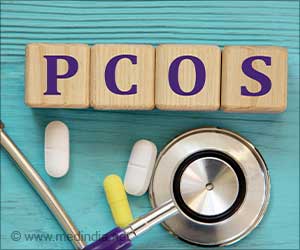Recent studies suggest a potential link between semaglutide-based medications, such as Ozempic, and an increased risk of suicidal thoughts.
- Semaglutide drugs linked to a higher risk of suicidal thoughts, especially with psychiatric medications
- Disproportionality signal noted primarily with semaglutide, not liraglutide
- Experts urge monitoring mental health in patients using these drugs
Disproportionality Analysis From World Health Organization Data on Semaglutide, Liraglutide, and Suicidality
Go to source).
Semaglutide drugs like Ozempic may pose a risk of suicidal thoughts, especially when used with antidepressants. #weightlossdrugs #mentalhealth #medindia’
What Are GLP-1 Receptor Agonists?
Glucagon-like peptide 1 (GLP-1) receptor agonists are a class of medications designed to help regulate blood sugar levels in people with type 2 diabetes. These drugs mimic the action of the GLP-1 hormone, which promotes insulin secretion, inhibits glucagon release, and slows gastric emptying. These effects collectively help maintain stable blood glucose levels and promote weight loss, making them appealing for individuals struggling with obesity.Several GLP-1 receptor agonists are available, with semaglutide being one of the most widely used. Medications such as Ozempic, Wegovy, and Rybelsus, all based on semaglutide, have become popular choices for managing both diabetes and weight. Other GLP-1 drugs, like Saxenda and Victoza, are based on liraglutide, another compound in the same class.
Examining the Link to Suicidal Ideation
The study, led by Dr. Georgios Schoretsanitis, analyzed data from the World Health Organization's global database of adverse drug reactions. Researchers focused on reports of suicidal ideation among individuals taking semaglutide or liraglutide drugs. The findings revealed a disproportionately higher number of reports of suicidal thoughts among patients taking semaglutide-based medications, especially when combined with antidepressants or benzodiazepines.Key Findings on Semaglutide and Suicidal Thoughts
Disproportionality signal: A higher number of reports of suicidal thoughts than expected based on drug usage.
Semaglutide-specific: The risk was primarily associated with semaglutide-based drugs, not liraglutide-based ones.
Combination with psychiatric medications: The risk was heightened when semaglutide was used with antidepressants or benzodiazepines.
Safety Considerations for Semaglutide Users
Importance of Monitoring Mental Health
Given the potential risks, Dr. Schoretsanitis and other experts recommend that healthcare providers closely monitor the mental health of patients prescribed semaglutide. Physicians should assess patients’ psychiatric history and mental state before starting treatment and remain vigilant for any emerging signs of suicidal ideation during the course of therapy. In cases of concern, collaboration with psychiatrists and clinical psychologists may be necessary.
The Risks of Off-Label Use and Online Prescriptions
Another significant concern is the growing trend of obtaining semaglutide drugs through online prescriptions, often without adequate medical supervision. Experts strongly discourage off-label use of semaglutide, as unsupervised treatment increases the risk of adverse effects going unnoticed or untreated. Proper follow-up and monitoring by a healthcare provider are crucial to ensuring the safe use of these medications.
The association between these drugs and suicidal ideation remains unclear, and more research is needed to establish whether there is a direct link. In the meantime, healthcare providers should prioritize patient safety by closely monitoring mental health and ensuring that semaglutide is used appropriately and under strict medical supervision.
Reference:
- Disproportionality Analysis From World Health Organization Data on Semaglutide, Liraglutide, and Suicidality - (https://jamanetwork.com/journals/jamanetworkopen/fullarticle/2822453)
Source-Medindia














